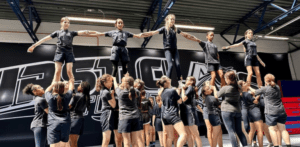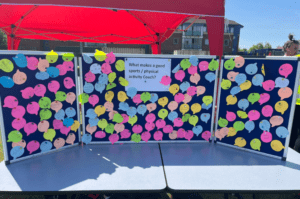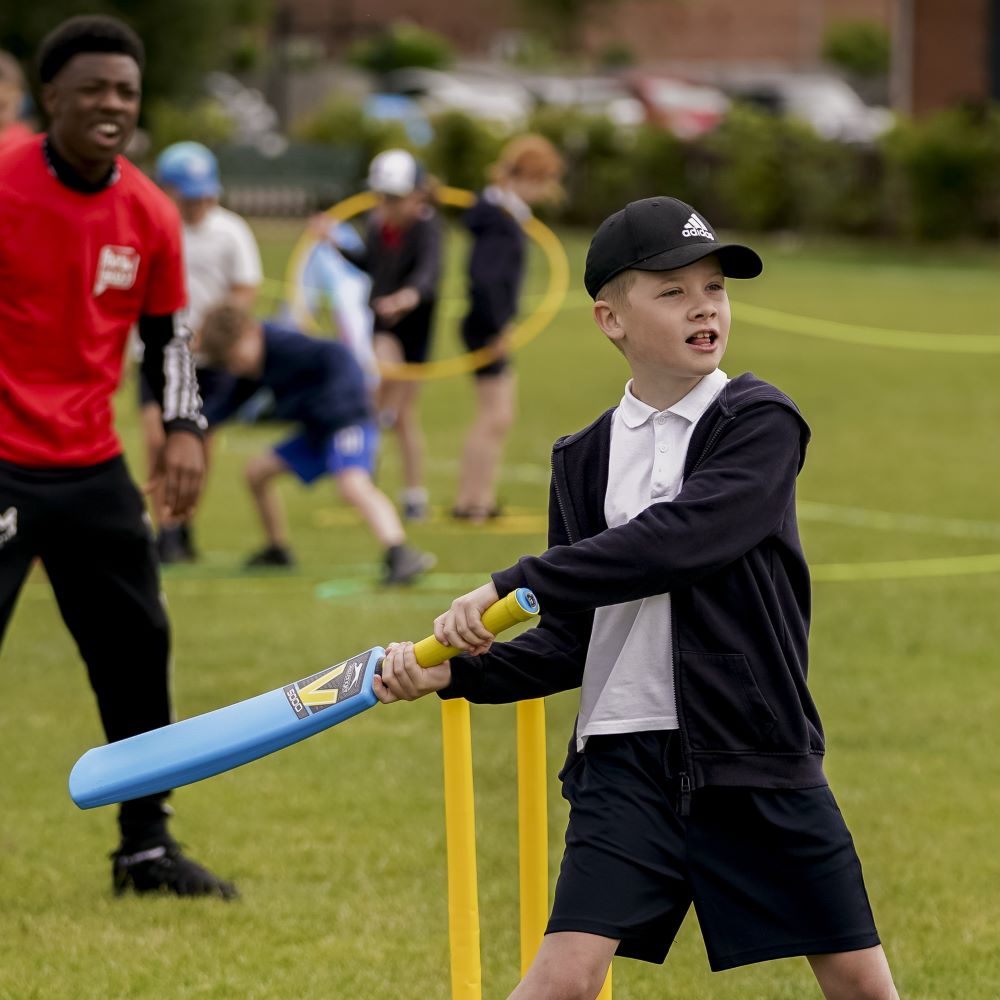Sports and physical activity participation for children and young people has been programme centred for decades. Our own experience of childhood is very different to that of today’s young people, especially if they have different backgrounds, interests and abilities to our own.
Physical Activity for all
28.2% of children in Buckinghamshire and Milton Keynes are active for less than 30 minutes per day (Sport England Active Lives Survey Academic year 22-23). We want to address this. Leap value inclusion and the opportunity for every child to participate in school sport and physical activity, particularly those young people who would not usually take part.
Why Youth Voice?
Leap think gaining the thoughts, opinions and experience of young people (Youth Voice) is crucial:
- To develop physical activity they wish to engage with
- We have an obligation through the UN convention on the Rights of the Child which in Article 12 states that children have the right to be listened to and taken seriously.
How we have gained young people’s opinions?
Here, we’ll share our journey so far in actively seeking and amplifying the voices of young participants in sport and physical activity and how we embed the approach in our work.
Initially we stepped back and asked ourselves how often young people were asked for their thoughts. What language did we use? How did we ask?
To inform our work we’ve embarked on a joint research project with the Open University Centre for Children and Young People’s Wellbeing and other interested partner organisations. Our aim is to discover what young people want for their physical activity. We were clear we wanted more than a ‘tick box exercise’: it was important that we were conscious and meaningful, and that responses inform future work. Leap have tested different ways to understand and learn from the young people:
- Forums and Focus Groups
- Observation
- Direct Questioning
- Interactive surveys: such as Post It Notes, boxes to drop responses into.
We held forums with participants. They, as you would expect, began with little interaction but as confidence developed we found the young people were keen to share their opinions!
Focus groups with young people in Bletchley, Milton Keynes showed the importance of how questions were phrased: for example we found terms such as physical activity and wellbeing were not commonly understood. For many young people who do not participate in traditional sports in their free time, their only experience is likely to be from school PE lessons. ‘What do you like to do in your spare time’ or asking about their sources of fun and enjoyment gave more useful responses.


As part of the Opening Schools Facilities investment process we ask how have young people influenced the project that the school has proposed. This ensured young people have shaped the project and is based on their needs. Aspire is a great example: they turned an empty space into a gym as this was something the young people requested. They then further listened to the young people by creating a challenge board due to feedback from the young people.
At July’s School Games festival, whilst inter-school competitions were offered, the main focus of this day was to offer a positive experience of movement to less active young people. We asked the students how they felt before and after their events by chatting to them. We received honest feedback:
“To be honest, I only signed up to get out of school, but it’s been great. We learnt how to do tricks and some new skills. I’m going to tell everyone back at school about it and tell them we had ice cream after.”
“I’ve gone from barely knowing how to ride a bike to standing up on one; it feels like I’ve just had lots of sugar!”
“I don’t like it. I don’t like most sports. When can we leave?”
We’ve tested different ways of using interactive surveys.
At Lead The Way (an event providing young people with Special Educational Needs the opportunity to gain skills for leading, coaching and delivering movement and physical activity opportunities) students were asked to put their thoughts anonymously on post notes and stick them on the wall. We received one word answers which weren’t able to influence future events. At the next event we will 

Following the same event a survey was sent to schools: response was low and the completed surveys still contained one word answers. Will change our approach for future surveys.
We have also tested a token box at School Games events. Initially we asked ‘Did you enjoy your day?’ but have developed this to ask questions such as ‘What makes a good coach?’ to inform our coach education. The answers to the latter question (mainly around fun) will lead to further questions like ‘What is fun?’ for future events.
Key Learnings
Key learnings so far are:
- Avoiding terms such as ‘wellbeing’ and ‘physical activity’ as these are not commonly understood phrases. Instead, ask what the young people like to do in their free time.
- Engaging a story telling specialist at events to gain young people’s opinions was incredibly informative.
- We can receive feedback by simply observing a session.
- Post it notes can generate one word answers, but used creatively they may give more useful information.
Where next?
Feedback is helping shape future events to help them appeal to students who don’t usually attend sports activities. We will be clear about what will be happening to allay any fears, arranging more and smaller events, and continue to offer activities such as BMX, Skateboarding and ‘activity stations’.
Looking ahead, we will develop consistent gathering of youth voices across all of our events. By reflecting on our testing, we can ensure that the information we gain accurately reflects the opinions of the young people.
In the future, Open University Centre for Children and Young People’s Wellbeing will be evaluating Play Their Way (child first coaching) and this will give us further insight into how young people can have a voice, choice and decide their journey when participating in sport and physical activity, so they develop a genuine and lifelong love for being active.
Through listening to young people’s voices we can understand how to create activities they enjoy, can advocate to others and potentially continue.
We would love to hear from you if you share our interest in hearing what young people have to say. We have no pre-conceived ideas about what ‘active’ means – except that staying active often contributes to wellbeing and is fun and enjoyable.
Please contact rhsmith@leapwithus.org.uk for more information.





